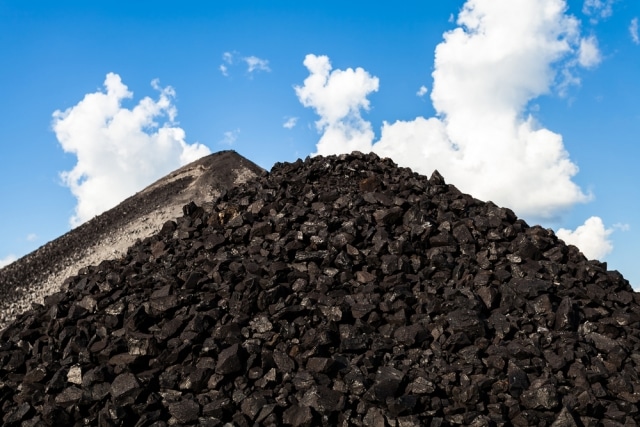Peabody Energy, the largest coal company in the U.S., deployed one of the lawyers on its payroll to Congress last week to argue against the Environmental Protection Agency’s new carbon rule.
This is so common that it normally wouldn’t rate a mention, but in this case it happened to be Obama’s former Harvard law professor Laurence Tribe, who now works for Peabody and is critical of the EPA’s Clean Power Plan, saying it is tantamount to “Burning the Constitution.”
But then, even that ranks pretty low in terms of newsworthiness given that, as a new analysis by Greenwire E&E reporters Corbin Hiar and Manuel Quiñones puts it, “The highest profile practitioner of targeted climate messaging is Peabody Energy Corp.”
The Greenwire analysis shows that many coal companies are, in fact, frequently talking out both sides of their mouths when it comes to climate change, and uses Peabody in particular as a case study of the legal and shareholder risks involved.
Peabody lodged a number of complaints in the comments it submitted against the Clean Power Plan — comments Tribe was paid to help write — but Greenwire summarizes the company’s main arguments to the federal government and to the American public as essentially being that the threat of climate change has been overblown, the science is flawed and we shouldn’t ignore the benefits of global warming.
Peabody is especially disparaging of the Intergovernmental Panel on Climate Change’s work, which helped inform the EPA’s plans to lower emissions from power plants, saying it “is deeply flawed and should not be accepted at face value.”
When talking to investors in its most recent 10-K annual performance report as mandated by the U.S. Securities and Exchange Commission, however, Peabody sings a whole different tune, acknowledging IPCC reports that raise concerns about fossil fuels’ contribution to climate change. “No mention was made of the allegedly unreliable science that underpinned those reports from the IPCC,” the authors of the Greenwire analysis note. The SEC began requiring companies to report on material impacts on business operations from climate change in 2010.
Peabody stops short of expressing concern over global warming’s impact on profits, but does cite “increasing government attention” to greenhouse gas emissions from coal plants and other “climate issues” as a risk that “could materially and adversely affect our business.”
This may, even still, seem par for the course for a coal company. “Outside of SEC filings, companies might feel freer to lobby,” Betty Moy Huber, an expert in environmental law and corporate compliance issues at Davis Polk & Wardwell LLP, told Greenwire. “Within an SEC filing, there is a whole different set of liability standards, and they would be ill-advised to say something that cannot be legally backed up.”
Peabody executives may be simply hedging their bets, but if they think they face no potential consequences for trying to have it both ways on climate change — accusing regulators seeking to rein in emissions from coal plants of overreacting while assuring investors they take climate change seriously and can be relied upon to guide the company through what’s shaping up to be an uncertain future for the entire coal industry — they are wrong.
“That information does not square,” Jim Coburn, a manager at the sustainable investment group Ceres, told Greenwire in response to Peabody’s statements. “That’s a real problem for the company because the company is misleading investors in its SEC filings.”
It’s not just Peabody: Greenwire found other U.S. companies like Alpha Natural Resources, Arch Coal, and Cloud Peak Energy that oppose climate regulations admit to shareholders that climate change is a legitimate cause for concern. Fittingly, they all focus more on government scrutiny and “tend to steer clear of climate-related infrastructure issues posed by sea-level rise or the potential for increasingly severe natural disasters.”
Image Credit: kaiskynet / Shutterstock.com
Subscribe to our newsletter
Stay up to date with DeSmog news and alerts







